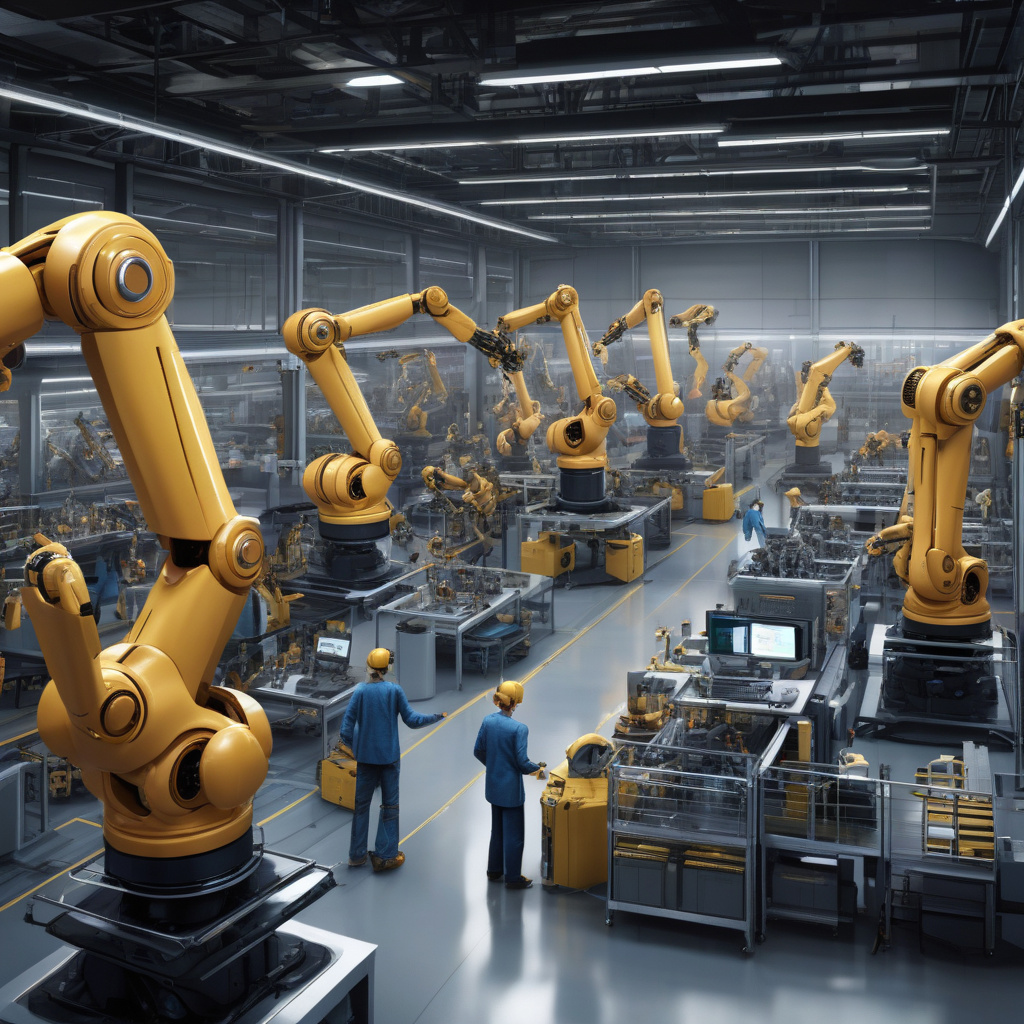Adoption of AI in Manufacturing: A Look into Trends, Strategies, and Challenges
Artificial Intelligence (AI) adoption is revolutionizing the manufacturing sector, with a significant 80% of firms investing in automation to enhance efficiency, implement predictive maintenance practices, and fortify supply chain resilience. The integration of AI technologies in manufacturing processes is reshaping the industry landscape, offering a myriad of benefits while also presenting unique challenges and complexities.
One of the prominent trends in the adoption of AI in manufacturing is the emphasis on enhancing operational efficiency. By leveraging AI-powered solutions such as predictive analytics and machine learning algorithms, manufacturers can optimize production processes, minimize downtime, and improve overall equipment effectiveness. For instance, predictive maintenance enabled by AI can help anticipate equipment failures before they occur, enabling proactive maintenance actions that prevent costly disruptions in production.
Furthermore, AI is playing a crucial role in enabling real-time data analysis and decision-making in manufacturing environments. Through the use of AI-driven analytics tools, manufacturers can gain valuable insights from vast amounts of data generated across the production cycle. These insights can inform strategic decision-making, identify opportunities for process optimization, and drive continuous improvement initiatives within the organization.
Another key trend in AI adoption in manufacturing is the focus on building resilient and agile supply chains. By harnessing AI technologies such as demand forecasting algorithms and supply chain optimization tools, manufacturers can enhance their ability to respond swiftly to changing market dynamics, mitigate risks, and ensure seamless operations even in the face of disruptions. This proactive approach to supply chain management is becoming increasingly essential in today’s globalized and volatile business environment.
Despite the numerous benefits associated with the adoption of AI in manufacturing, companies also face several challenges in implementing these technologies effectively. One of the primary obstacles is the high initial investment required for deploying AI systems and infrastructure. Many manufacturers, especially small and medium-sized enterprises, may find it challenging to justify the upfront costs of AI implementation, despite the long-term advantages it offers.
Moreover, integrating AI into existing manufacturing processes and systems can be complex and labor-intensive, requiring specialized technical expertise and resources. Companies need to overcome internal resistance to change, upskill their workforce to operate and maintain AI systems, and ensure seamless integration with legacy systems to maximize the benefits of AI adoption.
In conclusion, the adoption of AI in manufacturing is a transformative trend that promises to reshape the industry by enhancing efficiency, enabling predictive maintenance, and bolstering supply chain resilience. By staying abreast of emerging AI technologies, developing robust implementation strategies, and addressing the challenges associated with AI adoption, manufacturers can unlock new opportunities for growth, innovation, and competitiveness in the digital age.
AI in Manufacturing, Manufacturing Trends, AI Strategies, Challenges in AI Adoption, Digital Transformation
